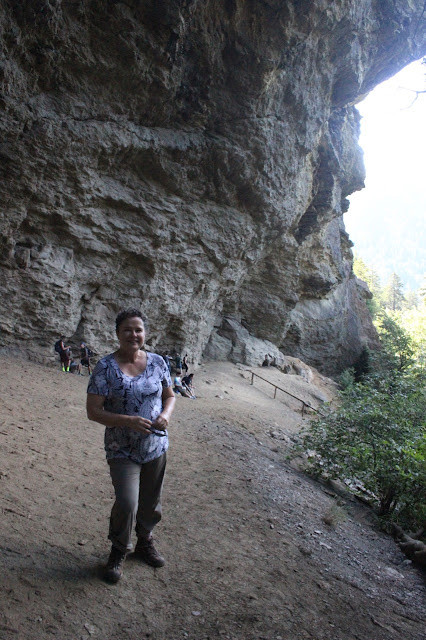for decades I have hiked up and down a great Eastern mountain,
what we call Mt. LeConte now,
whom the Cherokee called Walisiyi,
“the abode of the great green frog,”
there at the top, nestled among fir and spruce,
hard-by a bountiful spring,
a spring fuller and higher than any other up here tends to be,
a homely lodge hunkers down and welcomes any
I well remember the rite-of-passage of my first hike
to the enchanted mountain top, at about age 10,
I well remember cross-country up Bear Pen Hollow,
a few times just pulling self straight up the side of the mountain,
the old way,
twice following the phone line
straight up and down above Rainbow Falls,
I well remember the five times
I have hiked up and down in one day,
and we hope to do that again,
I well remember decades
of grandfathered reservations at the lodge on top,
I remember meals in the valley,
before and after our vigorous adventure,
baked trail loaves and treats for the hikes,
a magical camaraderie of people and place at the top,
reached by
through Arch Rock, up on dry ridges and bluffs,


 |
| Peregrine Falcon on Duck Hawk Ridge, by Alum Cave Bluffs |
—or the Rainbow Falls Trail—the steady pull up
while the creek dances down,
from a ledge of Thunderhead sandstone bedrock,
views from the top of
Rocky Spur, after a long meander,
then a final pull up to the lodge,
—or the Bullhead Trail—as you leave stream and valley
the long pull up around Balsam Point,
and the exhilarating contour along the steep top of the valley,
then the final pull up to the lodge,
—or the Trillium Gap Trail—snaking through cove hardwoods
but gentler than the Roaring Fork which plunges steep
while you wander up its neighboring slopes,
—or the Boulevard—up and down and up high ridges,
finding the way to the top from the east
like the Sun each morning,
Mt. LeConte stretches east-west,
draped with earthen gardens:
tree and bush, moss and fern and flower,
a promontory of cliff at each end,
ready for whatever performance the Sun can make
with whatever the sky allows and facilitates,
often the glory released has been enough
to bring tears to my eyes
when I have had the fortune to be there,
at sunset my brother started a tradition
of fine chocolate to appreciate
while we witness and celebrate the close of a good day,
at 4:30 am. I would sing to my groups about
the finest hour between “edge of night and the break of day,”
and for those making the effort to get up and walk the mile to Myrtle Point,
we would heat water for hot chocolate, tea, and coffee,
black sky and stars would slowly yield to a greying
that allowed forest and mountain to steadily reveal themselves,
then the Sun could flame the eastern sky,
slowly, inexorably rising to give light to our words,
and the paths that we walk,
to the promise inherent in a new day,
to the hope that the universe gives us with every morning,
my wife and I would often risk a song in response:
the beds at LeConte Lodge, accepting and comfortable,
the food at LeConte Lodge, filling and enabling,
the workers at LeConte Lodge, serving so that we can open into wonder,
I feel a deep sadness as my age slows me,
and as my time on top the mountain becomes iffy,
like Harvey Broome, who wrote he never liked to leave the top of a mountain,
by Henry H. Walker
January 21, ‘20


































2 comments:
So descriptively moving Henry. You read my mind and capture my heart with this one!
Henry- The poetry and the illustration, and the thoughts of the timelessness of the mountains and the short time we have on this earth to enjoy them are deeply moving.
Post a Comment